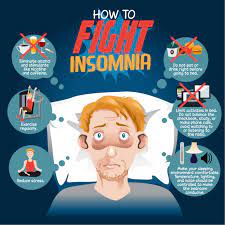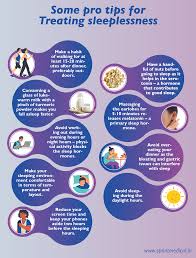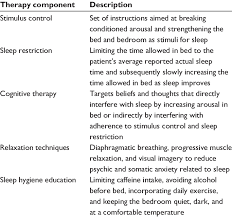Bipolar Disorder and Insomnia: Understanding the Relationship
Bipolar disorder is a mental health condition characterized by extreme mood swings that include emotional highs (mania or hypomania) and lows (depression). Individuals with bipolar disorder often experience disruptions in their sleep patterns, with insomnia being a common issue that can significantly impact their overall well-being.
Insomnia in Bipolar Disorder
Insomnia refers to difficulty falling asleep, staying asleep, or experiencing non-restorative sleep. Research suggests that individuals with bipolar disorder are more likely to experience insomnia compared to the general population. The relationship between bipolar disorder and insomnia is complex and multifaceted.
During manic episodes, individuals with bipolar disorder may feel a reduced need for sleep or experience racing thoughts that make it difficult to fall asleep. On the other hand, during depressive episodes, they may struggle with hypersomnia (excessive daytime sleepiness) or have difficulty maintaining a regular sleep schedule.
The Impact of Insomnia on Bipolar Symptoms
Insomnia can exacerbate symptoms of bipolar disorder and contribute to the severity of mood episodes. Sleep deprivation can trigger manic episodes or worsen existing mania, leading to increased impulsivity, irritability, and decreased ability to think clearly. Conversely, inadequate sleep can also intensify depressive symptoms such as low energy, feelings of hopelessness, and difficulty concentrating.
Moreover, disrupted sleep patterns can interfere with the effectiveness of medications used to manage bipolar disorder. Poor sleep quality may reduce the efficacy of mood-stabilizing medications or antidepressants, making it challenging for individuals to stabilize their moods and manage their symptoms effectively.
Managing Bipolar Disorder-Related Insomnia
Effective management of insomnia in individuals with bipolar disorder is essential for promoting overall mental health and well-being. Some strategies that may help improve sleep quality in individuals with bipolar disorder include:
- Establishing a consistent sleep schedule: Going to bed and waking up at the same time every day can help regulate your body’s internal clock.
- Creating a relaxing bedtime routine: Engaging in calming activities before bed, such as reading or taking a warm bath, can signal your body that it’s time to wind down.
- Avoiding stimulants close to bedtime: Limiting caffeine intake and avoiding electronic devices before bed can promote better sleep quality.
- Seeking professional help: Consulting a healthcare provider or mental health professional for tailored treatment options such as cognitive-behavioral therapy for insomnia (CBT-I) or adjustments to medication regimens.
In Conclusion
Understanding the relationship between bipolar disorder and insomnia is crucial for effectively managing both conditions. By addressing sleep disturbances and implementing healthy sleep habits, individuals with bipolar disorder can enhance their quality of life and better regulate their mood symptoms. Seeking support from healthcare providers and mental health professionals is key to developing personalized strategies for managing insomnia within the context of bipolar disorder.
8 Effective Tips for Managing Bipolar Disorder and Insomnia
- Maintain a consistent sleep schedule by going to bed and waking up at the same time every day.
- Create a relaxing bedtime routine to help signal your body that it’s time to sleep.
- Limit exposure to screens (phones, computers) before bedtime as the blue light can disrupt your sleep cycle.
- Engage in regular physical activity during the day, but avoid vigorous exercise close to bedtime.
- Avoid caffeine and stimulants in the evening as they can interfere with your ability to fall asleep.
- Consider relaxation techniques such as deep breathing or meditation to help calm your mind before bedtime.
- Create a comfortable sleeping environment that is cool, dark, and quiet.
- If you are struggling with insomnia due to bipolar disorder, consider discussing medication options with your healthcare provider.
Maintain a consistent sleep schedule by going to bed and waking up at the same time every day.
Maintaining a consistent sleep schedule by going to bed and waking up at the same time every day is a valuable tip for individuals managing bipolar disorder and insomnia. Establishing a regular sleep routine helps regulate the body’s internal clock, promoting better sleep quality and overall well-being. Consistency in bedtime and wake-up times can support mood stability, reduce the risk of manic or depressive episodes, and enhance the effectiveness of treatment strategies. By prioritizing a structured sleep schedule, individuals with bipolar disorder can improve their sleep patterns and contribute to better mental health outcomes.
Create a relaxing bedtime routine to help signal your body that it’s time to sleep.
Creating a relaxing bedtime routine can be a helpful strategy to signal your body that it’s time to sleep, especially for individuals dealing with bipolar disorder and insomnia. Engaging in calming activities such as reading a book, taking a warm bath, or practicing deep breathing exercises before bedtime can promote relaxation and prepare your mind and body for rest. By establishing a consistent and soothing routine each night, you can create a conducive environment for better sleep quality and improved overall well-being.
Limit exposure to screens (phones, computers) before bedtime as the blue light can disrupt your sleep cycle.
Limiting exposure to screens, such as phones and computers, before bedtime is a valuable tip for individuals managing bipolar disorder and insomnia. The blue light emitted by screens can interfere with the production of melatonin, a hormone that regulates sleep-wake cycles. By reducing screen time before bed, individuals can promote better sleep quality and establish a more conducive environment for restful sleep. This simple adjustment can contribute to improved sleep hygiene and support overall mental well-being for those navigating the challenges of bipolar disorder and insomnia.
Engage in regular physical activity during the day, but avoid vigorous exercise close to bedtime.
Engaging in regular physical activity during the day can be beneficial for individuals struggling with bipolar disorder and insomnia. Physical exercise has been shown to improve mood, reduce stress, and promote better sleep quality. However, it is important to avoid vigorous exercise close to bedtime as it can increase alertness and make it harder to fall asleep. Instead, opt for gentle activities in the evening such as yoga or light stretching to help relax both the body and mind before bedtime. By incorporating appropriate physical activity into your daily routine, you can support your mental health and establish healthier sleep patterns.
Avoid caffeine and stimulants in the evening as they can interfere with your ability to fall asleep.
It is advisable for individuals with bipolar disorder who experience insomnia to avoid consuming caffeine and other stimulants in the evening. These substances can disrupt the natural sleep-wake cycle and make it challenging to fall asleep. By steering clear of caffeine and stimulants before bedtime, individuals can improve their chances of achieving a restful night’s sleep and better manage their bipolar symptoms.
Consider relaxation techniques such as deep breathing or meditation to help calm your mind before bedtime.
Consider incorporating relaxation techniques such as deep breathing or meditation into your bedtime routine to help calm your mind and improve sleep quality. Engaging in these practices can promote a sense of peace and relaxation, making it easier to transition into a restful state before sleep. Deep breathing exercises and meditation have been shown to reduce stress, anxiety, and racing thoughts, all of which can contribute to insomnia in individuals with bipolar disorder. By incorporating these calming techniques into your nightly routine, you may find it easier to unwind and prepare your mind for a restful night’s sleep.
Create a comfortable sleeping environment that is cool, dark, and quiet.
Creating a comfortable sleeping environment that is cool, dark, and quiet can significantly benefit individuals dealing with bipolar disorder and insomnia. A cool temperature can help regulate the body’s natural sleep-wake cycle, while darkness promotes the production of melatonin, a hormone that regulates sleep. Additionally, a quiet environment minimizes disruptions that can interfere with falling and staying asleep. By prioritizing these elements in their sleeping space, individuals can enhance their chances of achieving restful and rejuvenating sleep, which is essential for managing symptoms of both bipolar disorder and insomnia effectively.
If you are struggling with insomnia due to bipolar disorder, consider discussing medication options with your healthcare provider.
If you are facing challenges with insomnia as a result of bipolar disorder, it is advisable to have a conversation with your healthcare provider regarding potential medication options. Medication can play a crucial role in managing sleep disturbances associated with bipolar disorder, and your healthcare provider can offer guidance on appropriate treatment strategies tailored to your individual needs. By seeking professional advice and exploring medication options, you can take proactive steps towards improving your sleep quality and overall well-being while effectively managing the symptoms of bipolar disorder.



